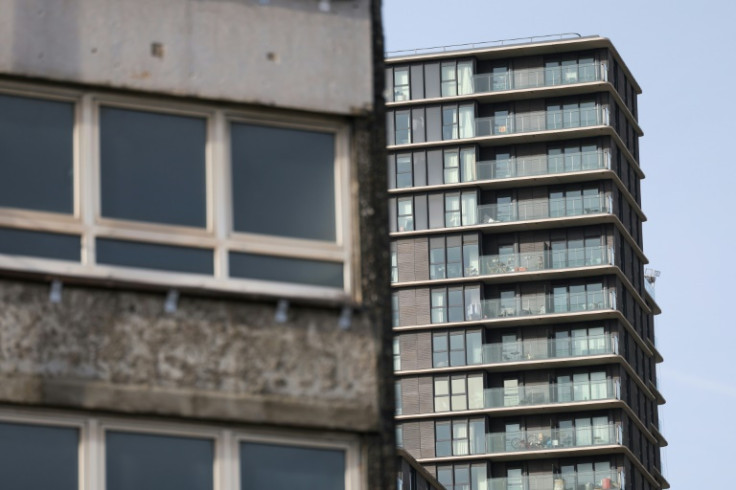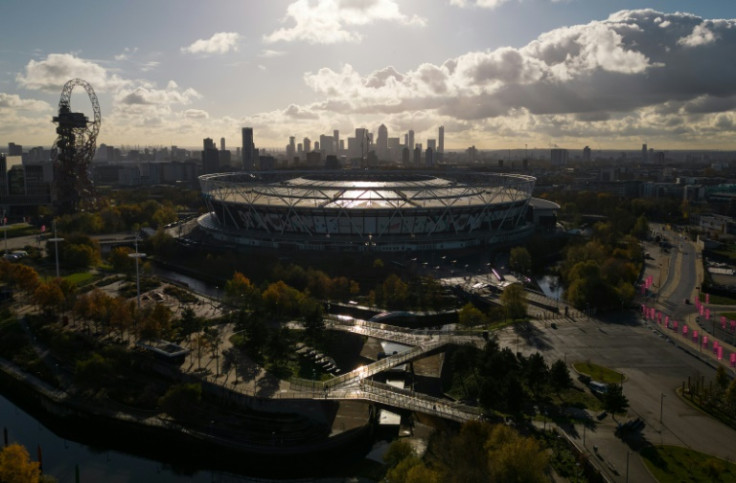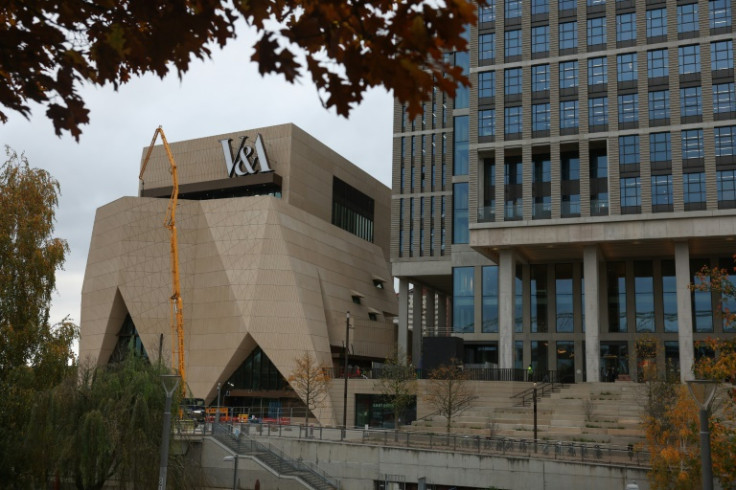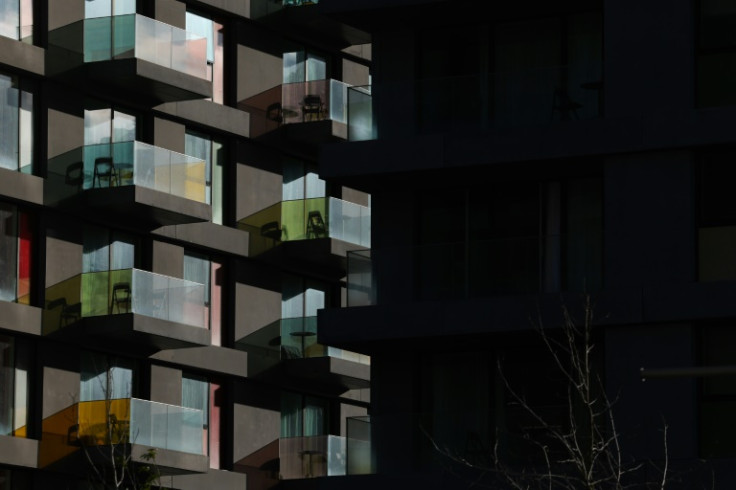London Still Awaits Olympic's Promised 'Affordable' Housing

More than a decade after London hosted the Olympic Games, cranes are still everywhere in and around the Olympic Park in Stratford, where an array of buildings are under construction.
But most of the "affordable" housing for the east London area, which like much of the British capital has seen gentrification in recent years, is still to be delivered.
The 2012 Summer Games -- widely seen as a roaring success -- were held primarily at the Queen Elizabeth Olympic Park in Newham, one of the city's poorest boroughs.
Heavily industrial in the 19th century, the factories, workshops and nearby docks had declined by the 1960s and 1970s, leaving behind polluted land and an increasingly deprived population.
Bidding for the Olympics, the organisers' promise was clear: the Games would provide the "enduring legacy" of regenerating "an entire community for the direct benefit of everyone who lives there".
That included plans to build tens of thousands of homes, particularly social housing at so-called affordable rates, alongside new amenities.
But critics say the transformation taking place is not living up to the pledges made over affordability.

Nearly 12 years after the global showcase, new residents continue to stream into newly built homes in the area.
Cafes and gyms have appeared alongside a superb Olympic swimming pool.
The park's green spaces are perfect for joggers and walkers, while a big Westfield shopping centre has opened.
A new railway line arrived in 2022, taking passengers to and from central London in 15 minutes.
The Victoria and Albert Museum, the Sadler's Wells dance venue and the BBC will all soon be opening branches in the park, while universities are also moving in.
Local resident Julia Johnson, 33, relocated from central London two years ago with her partner.
"The apartments are high-quality design. The neighbourhood is lovely," the project manager said as she walked her dog.
But Johnson pays GBP2,300 ($2,900) a month for a two-bedroom flat -- a similar rate to some of the city's central districts.
"In other blocks friends are paying GBP3,000," she noted, adding that many of her neighbours work in the well-paid high-tech sector.
University College London researcher Penny Bernstock said the "key beneficiaries of London's Olympic housing legacy have been wealthier professional groups", which was "disappointing".
Nearly 12,400 homes have been built in and around the Olympic site, but only around 1,000 -- less than 10 percent -- are social housing units, according to figures from the London Legacy Development Corporation (LLDC).
It acts as the planning authority for the area around and including the Olympic Park.

"If you consider the money spent, the commitment to leaving a legacy for local communities that was central to London's bid, and the housing in that area, it is a scandal," Bernstock said.
"The park has been described as gentrification on steroids -- an island of affluence in a sea of poverty."
Newham has some of the poorest neighbourhoods not only in London but the entire UK.
Many of those living in the shadow of the former Olympic site still face dilapidated conditions and poor prospects, while suffering fallout from Stratford's transformation.
Narjiss Kadiri, a 45-year-old housewife, lives just beyond the park.
She rented a private flat in the area with her husband and their five children, initially for GBP1,000 a month, which then was increased to GBP1,400.
The rent leapt to GBP1,800 when she moved out two years ago, after securing a GBP600-a-month social housing flat following an 18-year wait.

"A lot of couples I knew dropped out and left London," she said.
In Newham, rental rates surged by 58 percent between 2012 and 2019 and by 20 percent over the last three years, the biggest rise of any London borough.
In 2023, the average rent for a flat there was GBP1,850.
Demand for social housing in Newham was the second highest in England in 2022, according to Bernstock's research.
The increases are "particularly problematic given the income profile of Newham residents", she said.
"There is evidence of an Olympic effect, with the borough experiencing some of the highest house price growth in the owner-occupied and privately rented sector in London," Bernstock added.
Mark Robinson, a manager at LLDC, recognised the contradictory "dilemma" of such large-scale regeneration.
"You invest vast amounts of money into the area, you increase land value, as a result rents rise, and then the people you wanted to help are in danger of being priced out," he said.
Robinson said construction would continue for another 15 years and include thousands of "affordable" homes.
Borough-wide, the Games have led to "some good things", Bernstock acknowledged.
"They have built fantastic schools because they wanted to attract families to the area and improve educational activities," she said.
Meanwhile crime levels on Stratford's outskirts have fallen.
"The area is much safer than it was before the Games," Kadiri said.
© Copyright AFP 2025. All rights reserved.




















